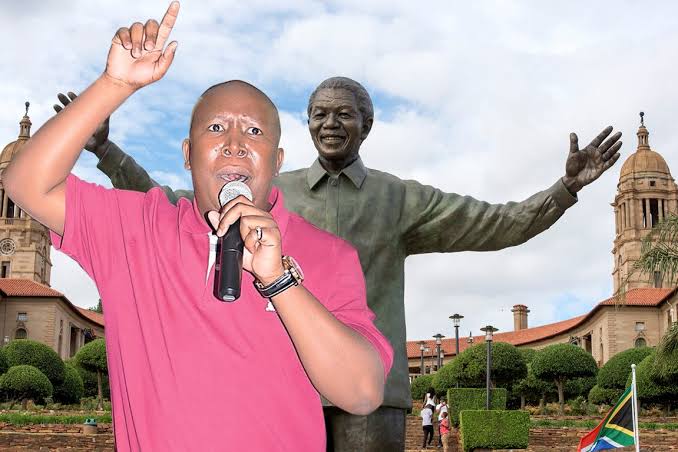South Africa and the unpaid debt of the anti-Apartheid struggle
By Femi Olugbile
The city of Montreal, Canada, was agog with preparations and anticipation of hosting the Games of XXI Olympiad. Nigeria had assembled a team of talented athletes, among the finest it had ever put together, with some of them acknowledged as being in the top tier of their sport world-wide. Charlton Ehizuelen was one of the most outstanding athletics prospects. His specialties were in long jump and triple jump. On current form, he was a strong medal prospect. There were other well-known names – Dele Udoh, Taiwo Ogunjobi, Olurotimi Peters, Modupe Oshikoya. Apart from the Athletics team, Nigeria was presenting a contingent of boxers that included Obisia Nwankpa, Davidson Andeh. And there were the high-riding Green Eagles featuring such household names as Emmanuel Okala, Christian Chukwu, Godwin Odiye, Mudashiru Lawal, Thompson Usiyan, Haruna Ilerika, and Segun Odegbami. In all there were 20 track and field athletes, 20 footballers, three boxers and one swimmer registered to represent Nigeria.
They arrived in Canada in high spirits.
But outside of Canada, dark clouds were gathering.
The year of the Soweto Massacres, when more than a hundred protesting African school children were gunned down by racist policemen defending the Apartheid state. There was wide-spread consensus that other nations should boycott sporting contacts with South Africa to show solidarity with the suffering black masses of the country.
But not everybody chose to abide by such consensus. The one sport New Zealand was famous for was rugby, where it’s All Blacks team was a terror to all its rivals on the international scene. It was also widely known that the game of rugby was the most popular sport among the whites of South Africa, and they were very proud of their Springboks team.
When New Zealand announced that the All Blacks would be embarking on a playing tour of South Africa, it was seen as a slap in the face of black people all over the world. There were howls of protest.
The Kiwis stuck to their guns.
It was a test of Africa’s resolve, and its solidarity with the anti-Apartheid struggle.
For a change, African governments showed spine. If New Zealand was not excluded from the Olympics, for violating the sporting boycott of Apartheid South Africa, Africa would boycott the Olympics.
Initially it was seen as grandstanding.
And then, led by Nigeria, the governments of 27 mostly African nations directed their athletes to turn round and return home, boycotting the Twenty-first Olympiad. It was a development whose shock waves would reverberate through international sporting history. A moment of pain, but also a moment of pride, for Africa. In Soweto, the crowds celebrated.
And so, Nigeria’s 44 young men and women, crestfallen, heartbroken, returned from Canada.
The prime of an athlete’s life is evanescent, gone almost as quickly as the peak is reached. For many of the 44 in the team, it was the end of their sporting careers. Charlton Ehizuelen, who had peaked in time for Montreal, would struggle afterwards, win a few laurels, and fade into the sunset.
On their return, the Head of State, a certain General Olusegun Obasanjo, tried to console the young Nigerians, assuring them they had made a worthwhile sacrifice for their African brothers.
The African countries who boycotted Montreal had made a telling statement that Africans would fight to liberate their brothers in South Africa whatever it cost, however long it took.
Apartheid formally ended in South Africa with the ascendancy of Nelson Mandela to the Presidency in 1994. Mandela, the big-picture leader, who snatched the Rainbow Nation from the jaws of a looming fratricidal black-on-black-on-white war that would have left a pyrrhic wasteland, the sort depicted in Nobel-laureate Nadine Godimer’s ‘July’s People’, was also a big-hearted man who was effusive in his praise of fellow Africans, particularly those of the frontline states of Southern Africa, for the sacrifices they had made to liberate his people, including the many deaths and devastations they had suffered. He had a visionary perspective on Nigeria, stating that it was the destiny of Nigeria to lead Africa, and the black world, to their ultimate destiny.
But since Mandela, there has been a loud silence in South African circles, and a failure to acknowledge, even symbolically, the debt they owe the rest of Africa. Instead, contemporary history is suffused with xenophobia, incomprehensible hostility, and periodic attacks against other Africans. The ludicrous battle cry is –
‘They have come to take our jobs.’
Howling mobs go into a frenzy of hate, pillage, and murder. Political leaders, except for Economic Freedom Fighters’ Julius Malema, are either mealy-mouthed in their condemnation, or quietly supportive of the paranoid narrative.
When, on July 28, 2023, a public-spirited Nigerian, Allen Onyema, decided, belatedly, to recognise and honour the Nigerian sportsmen whose careers were sacrificed almost fifty years ago in the battle against Apartheid, Ambassadors of African nations in Nigeria were invited to the ceremony, which took place at NIIA, Victoria Island. Virtually all the Ambassadors turned up in person. All, except the South African Ambassador, who was represented by a deputy. A clearly miffed Professor Bolaji Akinyemi, who chaired the event, took the fact as yet another evidence that South Africa was in denial about its debt of gratitude to Nigeria and the rest of Africa.
Many days after the event, Segun Odegbami, who was instrumental in convening the historic celebration, would tell this author that ‘The South Africans are planning something.’
Whether or not they are ‘planning something’, the leadership of South Africa need to do some hard thinking. Whatever difficulties they may be having in the present, with ESKOM, economic woes, unemployment, and widespread public discontent, they are letting themselves down by not connecting the consciousness of their often ignorant, insular present generation with the truths about their past, and how the sacrifices of others were instrumental in paving the way to the present, imperfect as it is.

